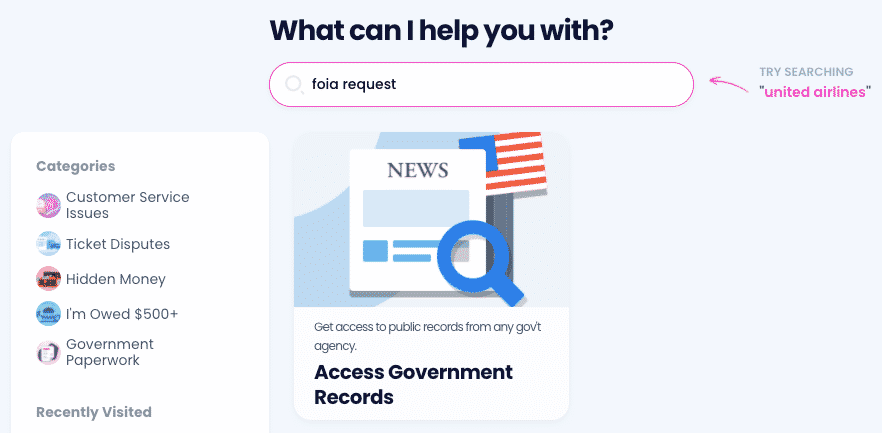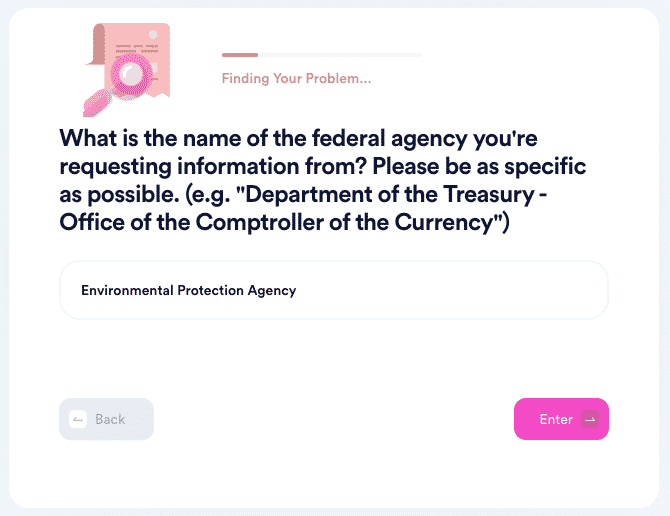Everything About the Massachusetts Freedom of Information Act
Since President Lyndon B. Johnson signed it into law in 1966, the Freedom of Information Act (FOIA) represents a connection between the public and government-related activities.
The Massachusetts Public Record Act is a state-specific law with similar meaning. It enables citizens to request, examine, and copy public records held by the government on themselves or anyone else.
Our guide will help you learn the ins and outs of the Massachusetts Freedom of Information Act laws and teach you how to file your FOIA request in the blink of an eye.
What Does a Massachusetts FOIA Request Need To Contain?
The crucial step in requesting the necessary public records is composing and submitting a FOIA request letter.
The table below shows what details you have or don’t have to include in it:
| Information You Need To Provide | Information You Don’t Need To Provide |
|
|
What Are the Exemptions to the Massachusetts FOIA?
Exemptions are the records that the government protects from disclosure, and they aren’t accessible to the public. If you demand any information that belongs to these categories, the agency will most likely deny your request.
To make sure you are requesting the accessible info, check out the Massachusetts FOIA law before you submit the petition.
Some of the exemptions stated in the Massachusetts Public Records Law include:
- Adoption contact information
- Child advocates’ contact information
- Records related to the firearms owners
- Government-related hospital or health care services
- Real property appraisals before the final agreement
- Trade secrets and commercial or financial information
- Internal personnel rules and practices related to government
- Personnel and medical files that can harm someone’s privacy
- Documents related to contract or agreement proposals and bids
- Contact information of the commonwealth employees’ family members
- Memoranda or letters exchanged between agencies related to policy positions
- Personal notebooks and materials that belong to the commonwealth employees
- Investigatory materials gathered within the government circles by law enforcement
Standard FOIA Request Methods in Massachusetts
Different agencies have different request methods. Most of them recommend composing a written request, as it’s the best way to clearly explain what type of records you want. Some institutions offer request letter templates and forms you can take advantage of.
To find out which of the common request options apply in your case, check the specific institution’s website or contact the chosen agency and inquire about it.
Massachusetts FOIA Request Fees
While the request submission is free of charge, you may need to pay certain fees if your petition gets approved.
Agencies usually don’t charge requestors for the first four hours of searching for and gathering the requested public information. If they exceed this time, they can’t charge you more than $25 per hour. Municipalities won’t charge you if they manage to find the requested records within two hours. If they don’t, they can set up their hourly rate to $25 or more.
For each physical copy, an agency or municipality will charge you $0.15. You can avoid this by requesting electronic copies only or getting a fee waiver. The latter is usually applicable if you can prove that accessing the desired records can be in the public interest.
Massachusetts FOIA Request Processing Time
The response time of most agencies is ten business days. They need to provide you with a written response exclusively, which states:
- Request denial or approval
- Fee estimate information
- Appeal instructions
- Additional explanations or specific reasons for denying the request—if they reject it
If you don’t receive any response, you can usually check your FOIA request status by contacting the agency in question.
How To File a Massachusetts FOIA Request in a Snap
Writing requests by yourself can turn into a true inconvenience, especially if you aren’t familiar with the rules.

The good news is that, with DoNotPay, you don’t need to struggle with bureaucracy. We have simplified the request submission procedure, saving you from administrative fuss. With our app, you can file a FOIA request from your safely and efficiently in no time!
Here’s what you need to do to take advantage of our service:
- Open DoNotPay and log in to your account
- Search by keywords to find our FOIA service—use freedom, FOIA, public records, etc.
- Pick the State Agency or Federal Agency option
- Type in the name of the institution and titles or description of the desired records
- Apply for additional options, such as fee waivers or expedited processing
We will gather your details and generate a digital FOIA request letter. The agency you are requesting the records from will receive the letter shortly.

We Handle All Your FOIA Requests With Zero Hassle
If you want to find out how the Florida, Virginia, Arkansas, California, or North Carolina FOIA requests work, take advantage of and find out more! Read our amazing guides to demanding the necessary Navy, Army, or police records from any state or federal institution with no stress.
Here are some of the agencies we can help you request public information from:
- State Department
- Central Intelligence Agency (CIA)
- U.S. Department of Defense (DOD)
- Federal Bureau of Investigation (FBI)
- Illinois Environmental Protection Agency (IEPA)
- Office of Biometric Identity Management (OBIM)
- U.S. Securities and Exchange Commission (SEC)
- U.S. Citizenship and Immigration Services (USCIS)
- U.S. Equal Employment Opportunity Commission (EEOC)
Discovering DoNotPay Will Make Your Day
If you feel overwhelmed by tons of paperwork flooding every area of your life, you can finally breathe out and let go of that stress. DoNotPay is the world’s first AI Consumer Champion that handles your bureaucratic chores for you.
Some of the benefits that come with our service include:
- Quick fixes for your credit card issues
- DMV appointments scheduled with no fuss
- Extensions for due dates on your bills
- Foolproof methods for stopping robocalls, scam texts, and phishing emails
- Practice tests for various government exams
- Custom-made DMCA notices
- Unlimited burner numbers
- Thorough guidance through small claims court lawsuits
Why Get a Lawyer When You Have DoNotPay?
Our agenda has one major goal—provide easy access to anyone who needs it. Every new feature we come up with relies on AI technology that simplifies bureaucratic procedures and saves you time and money.
If you’re wondering how to navigate tasks like contacting imprisoned friends and family members or reducing your property taxes, DoNotPay has the answers. Our service cuts through the red tape even if you need to deal with stalking and harassment, claim forgotten assets the proper way, or secure compensation for crime victims.


